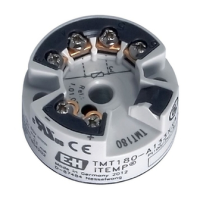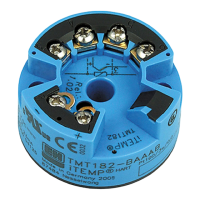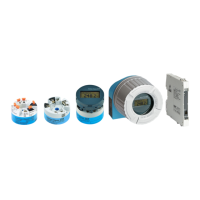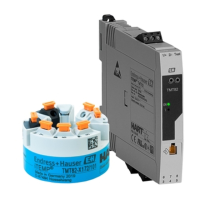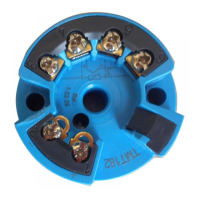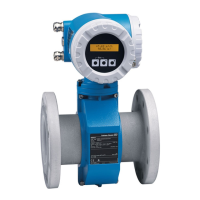Technical data iTEMP TMT112
30 Endress+Hauser
10 to 2 000 Ω Pt500, Pt1000, Ni1000
–10 to 75 mV Thermocouple type: C, D, E, J, K, L, N, U
–10 to 35 mV Thermocouple type: B, R, S, T
12.4.4 Influence of power supply
Sensor input: < 0,003%/V from measurement
Current output: < 0,007%/V of the adjusted measuring span
12.4.5 Influence of ambient temperature (temperature drift)
Total temperature drift = input temperature drift + output temperature drift
Effect on the accuracy when ambient temperature changes by 1 K (1.8 °F):
Input 10 to 400 Ω typ. 0.0015% of measured value, min. 4 mΩ
Input 10 to 2 000 Ω typ. 0.0015% of measured value, min. 20 mΩ
Input –10 to 75 mV typ. 0.005% of measured value, min. 1.2 µV
Input –10 to 35 mV typ. 0.005% of measured value, min. 0.6 µV
Output 4 to 20 mA typ. 0.005% of span
Typical sensitivity of resistance thermometers:
Pt: 0.00385 * R
nominal
/K Ni: 0.00617 * R
nominal
/K
Example Pt100: 0.00385 x 100 Ω/K = 0.385 Ω/K
Typical sensitivity of thermocouples:
B: 10 μV/K C: 20 μV/K D: 20 μV/K E: 75 μV/K J: 55 μV/K K: 40 μV/K
L: 55 μV/K N: 35 μV/K R: 12 μV/K S: 12 μV/K T: 50 μV/K U: 60 μV/K
Example for calculating measured error for ambient temperature drift:
Input temperature drift Δ T= 10 K (18 °F), Pt100, measuring range 0 to 100 °C (32 to 212 °F)
Maximum process temperature: 100 °C (212 °F)
Measured resistance value: 138.5 Ω (IEC 60751) at maximum process temperature
Typical temperature drift in Ω: (0.0015% of 138.5 Ω) * 10 = 0.02078 Ω
Conversion to Kelvin: 0.02078 Ω / 0.385 Ω/K = 0.05 K (0.09 °F)
12.4.6 Influence of load
≤ ± 0.02%/100 Ω
Values refer to the full scale value

